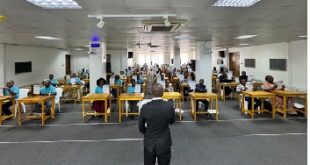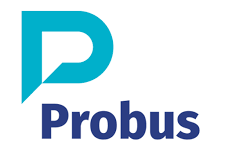Bangalore, January 22, 2025: Ground-water depletion is a pressing problem in Bangalore that is affecting the local community and ecosystem in terms of infrequent and low water supply city wide. To address this critical issue, creative solutions are required. Rehaan, an IB 2 student from Canadian International School (CIS) in Bangalore is working intensely to come up with strategies to address this crisis. Rehaan has developed an internet platform (website) (https://thegroundwaterproject.org) gathering vital information, data and perspectives on the city’s groundwater depletion status, sourced from the Central Ground Water Board and independent researchers to highlight the risks of the depletion across different administrative regions of Bangalore.
Through Rehaan’s extensive research, he learned that Bangalore faces a daily water deficit of 500 million litres, nearly 20% of its consumption, observing which he decided that the website needs to be updated on a consistent basis.
Rehaan’s website has noted the Central Ground Water Board’s (CGWB) classification of all regions of the city in three consecutive measurement years—2016-2017, 2020 and 2023. This classification indicates that groundwater extraction has exceeded the sustainable limit, endangering the city’s water security. Between 2020 and 2023, nearly all taluks reported zero reserves for future consumption. Nelamangala was a brief exception, showing 109.46 HAM (hectare-metre) of available water in 2020, only to drop to 0 HAM by 2023. (One HAM represents a hectare-metre, or the volume of water to cover 10,000 sq metres to a height of 1 metre).
Rehaan’s inspiration for this project arose from the severe water scarcity in Bangalore in 2024. Living in a rural residential community that relies on its own groundwater borewell, he witnessed first-hand the impact of water shortages in surrounding areas and incomplete development projects stalled by lack of access to water. This experience made Rehaan realise the need for accurate and up-to-date information that will hopefully inspire more effective citizen-led initiatives to address the issue. The data reveals a sharp increase in water demand from 2020 to 2023 in Bangalore South and East and a key factor influencing groundwater recharge is leakage from the city’s underground water pipelines, whose density varies significantly across Bangalore’s subregions.
Rehaan’s academic background at his school has been instrumental in the development of this project. Skills honed through classes in maths, economics, Theory of Knowledge and the Extended Essay component have equipped him with the ability to conduct scientific literature reviews, understand complex systems like Bangalore’s water cycle and approach this issue with a data-driven mindset. This project not only demonstrates his commitment to tackling environmental issues, but it also demonstrates CIS ‘s commitment to provide students with the skills and information they need to have a meaningful impact on their communities.
Rising Demand and Falling Recharge
The data reveals a sharp increase in water demand. From 2020 to 2023, domestic use surged dramatically in certain areas—most notably in Bangalore South, where usage rose from 148.06 HAM to 850.10 HAM. During the same period, the city’s annual groundwater recharge from all sources decreased from 5,185.66 HAM to 4,790.51 HAM. Although Bangalore East saw a reduction in domestic consumption from 388.42 HAM to 179.79 HAM during this period, total consumption in the area still rose, likely due to increased industrial activity. Total usage for all purposes in the East climbed from 4,393.38 HAM in 2020 to 5,007.84 HAM in 2023, underscoring the growing burden on groundwater resources.
A Solution for the Future
As urbanisation continues to drive water demand, the city must adopt more sustainable practices. Addressing the imbalance will require improving infrastructure to minimise pipeline leakage, promoting rainwater harvesting and regulating industrial water use. Without decisive interventions, Bangalore risks running out of groundwater reserves, with severe implications for the city’s future water security.
Rehaan’s initiative is intended to help administrative bodies, experts and policy makers evolve strategies to stop further depletion and later rejuvenate the water supply. The platform will assess factors such as net groundwater draft, replenishment rates, average rainfall and per capita water consumption by sourcing and analysing the data. The website displays crucial groundwater statistics from Bangalore in an easy-to-digest format. It lets residents map their locations to see how their area is affected. It also lets them track their water usage and compare it to the average consumption in their area.
It also features a crowdsourcing component, allowing residents to contribute data about their own water usage, thereby creating a shared resource for tracking and improving conservation efforts. By integrating data on groundwater levels and allowing users to input information about their own households or housing communities, the platform will offer a dynamic and interactive tool for measuring and improving individual and collective water conservation efforts.
“I envision this platform being used by the public to increase their awareness of their local water situation and to incentivise citizen-led action. Policymakers could use this information to observe areas that require urgent intervention and the nature of intervention – be it pipeline expansions, tanker supplies and so on — as well as guide future legislation. Additionally, environmental groups can use this to assist public service announcements and grassroots engagement,” says Rehaan.
“As a community, Bangalore saw first-hand this past year how the scarcity of water can impact our day to day lives. It is amazing to see the innovation of our students shine through to develop sources of information and action to help everyday citizens be more proactive and aware of sustainability issues,” observed Ms. Shweta Sastri, Managing Director, Canadian International School, Bangalore.
To spread the message of his website and platform, Rehaan plans to collaborate with organisations already involved in citizen science and water conservation. Additionally, he will use social media platforms to reach broader audiences and raise awareness about the potential solutions the website offers.
The path towards water conservation and groundwater resource management will require a coordinated effort from citizens, industries and the government to secure the city’s water resources for future generations. The school community is incredibly proud of Rehaan’s initiative and looks forward to the positive impact this project will have on water conservation efforts in Bangalore.
 Newspatrolling.com News cum Content Syndication Portal Online
Newspatrolling.com News cum Content Syndication Portal Online







